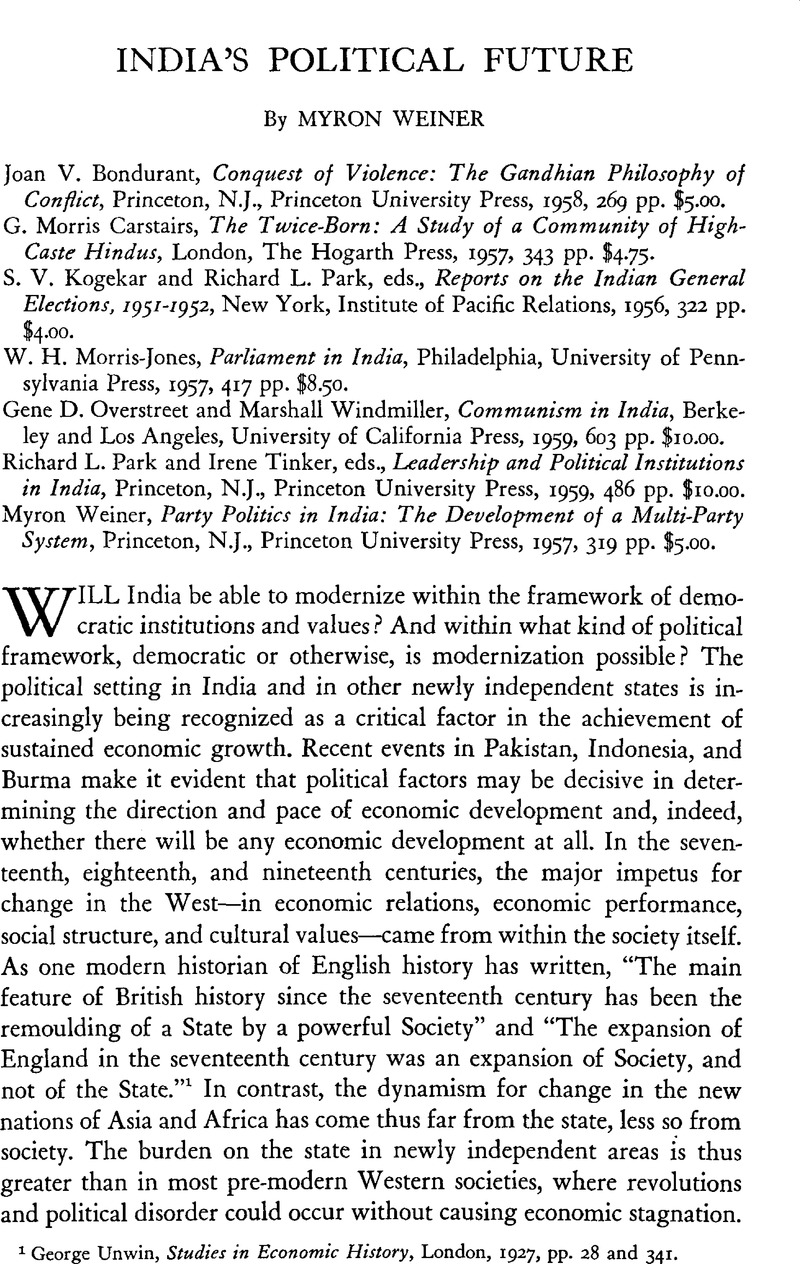No CrossRef data available.
Article contents
India's Political Future
Review products
Published online by Cambridge University Press: 18 July 2011
Abstract

- Type
- Review Articles
- Information
- Copyright
- Copyright © Trustees of Princeton University 1959
References
1 Unwin, George, Studies in Economic History, London, 1927, pp. 28 and 341.Google Scholar
2 While it is not customary for a scholar to review his own book, it seems justifiable in this instance in order to provide a comprehensive survey of recent studies dealing with political acculturation in India.
3 Lerner, Daniel, The Passing of Traditional Society: Modernizing the Middle East, Glencoe, Ill., 1958, p. 50.Google Scholar
4 It is beyond the scope of this article to assess the utilitarian and liberal theories which guided the British efforts at inducting Indians into new political institutions and values. It would be useful to examine the concepts of the various colonial theories concerning the ways in which natives could be inducted from one political process and one set of political roles and relationships to another in the light of what has happened since the colonialists have departed.
Perhaps the single best study of me impact of utilitarian theory on British policy in nineteenth-century India is the recent book by Stokes, Eric, The English Utilitarians and India, Oxford, 1959.Google Scholar Stokes shows how land taxes, land tenure systems, and the character of administration and government grew out of utilitarian theory. His study is a welcome answer to some of the naïve theories of imperialism.
5 Surprisingly, there is no such systematic study of the Congress Party.
6 One has only to compare the role played by the Chinese Communist Party as a modernizing organization with that of Congress in India. Admittedly, one is totalitarian and the other is not, but we might still ask whether the present Congress Party could not carry on more modernizing activities than it does now, within the framework of democracy.
7 An excellent example of what can be done by examining the relationship between basic cultural values and political behavior is Banfield's, Edward recent book, The Moral Basis of a Backward Society, Glencoe, Ill., 1958.Google Scholar This is an excellent study of the basic rules and principles which guide behavior in a southern Italian village. Banfield shows that the particular principles which govern interpersonal relations in this village inhibit corporate action for the common good and affect both political organization and economic development.
8 See Pauker, Guy J., “Southeast Asia as a Problem Area in the Next Decade,” World Politics, XI, No. 3 (April 1959), pp. 325–45.CrossRefGoogle Scholar


